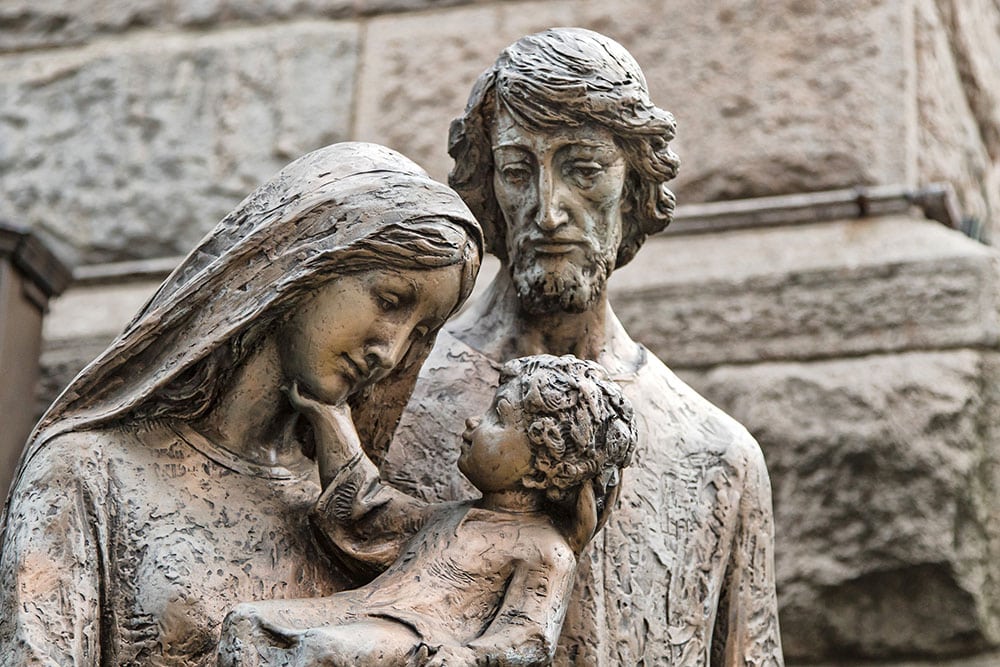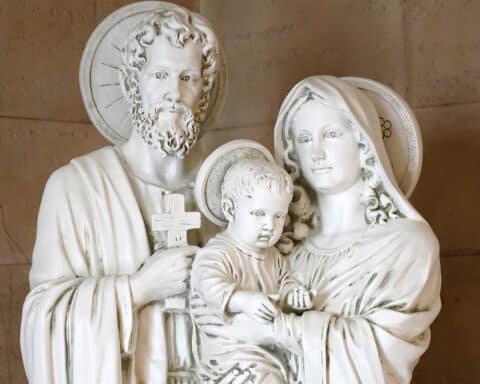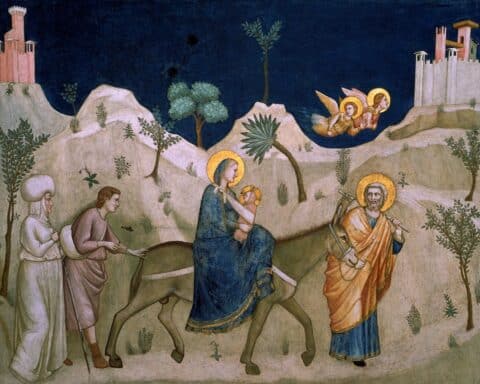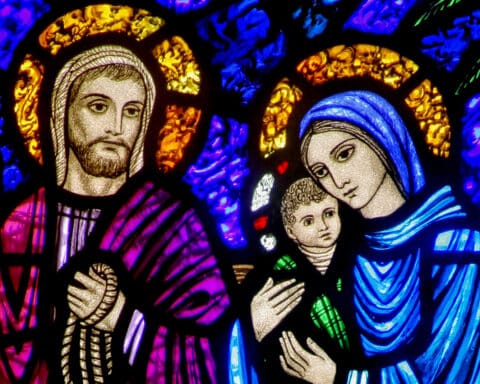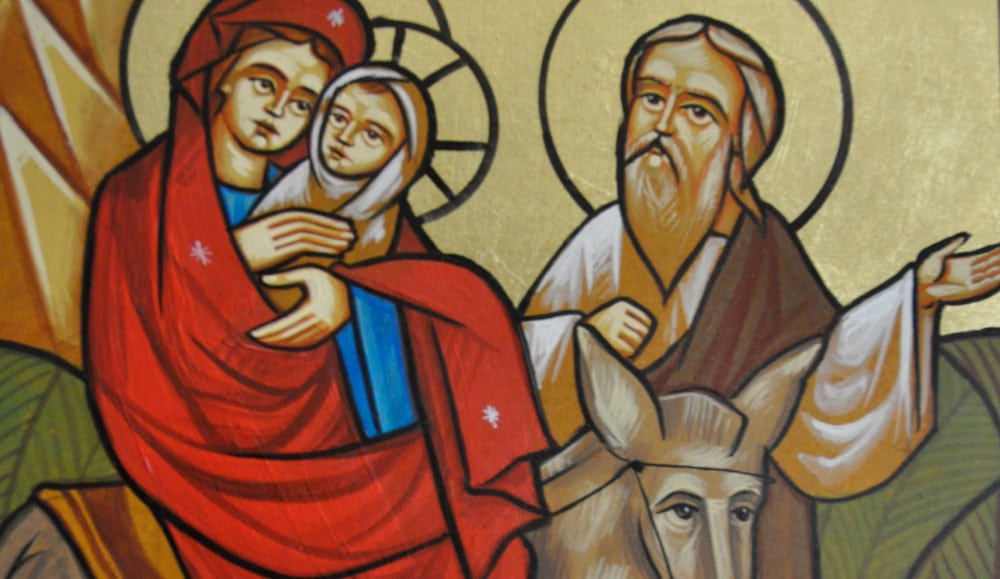
Yes, the world isn’t perfect. But there is another age, another world, not connected to this one.
Such secular critics have not celebrated the feast of the Holy Family.
Yes, this feast can fall into a kind of saccharine obsession with familial perfection. You’ve heard these homilies (I write this as a married man with kids). The Holy Family was a wonderful family, experiencing nothing but grace with one another. What’s wrong with you?
In fact, this is not what we celebrate on this feast. Joseph the dreamer again receives a message. The newborn babe, announced by angels, is threatened. Herod, the king addicted to bloodlust, wants to destroy all newborns. He’s too afraid that his power will be threatened by God’s chosen king, so he takes things into his own hands.
So much for the reign of peace.
| Dec. 29 — The Holy Family of Jesus, Mary and Joseph |
|---|
|
Sir 3:2-6, 12-14
Ps 128:1-2, 3, 4-5
Col 3:12-21
Mt 2:13-15, 19-23
|
Joseph, Mary and Jesus go down into Egypt. They leave their homeland, becoming immigrants without a home.
After the death of Herod, Joseph dreams again. Once more, the Holy Family is called back to Israel, except there is still the threat of death. So Joseph, the most righteous of dreamers, settles in the hidden space of Nazareth.
Welcome to the life of the Holy Family, born during an enforced census in Bethlehem, subject to the violence of state and religious cult alike. They’ve walked hundreds of miles.
This is the family that we venerate. Not an imagined family of 2.5 children. Not an imagined family in which husband and wife never experience a moment of difficulty. Not an imagined family in which the children get into excellent schools like Notre Dame and Harvard.
We venerate a family that never escaped from the violence of the present age. They entered more deeply into the world, and through this, they manifested the fullness of divine love.
The fullness of divine love, represented by the Holy Family, has also transformed those of us who belong to normal families who are not made up of Joseph the righteous, the Immaculate Virgin and the Word made flesh.
For God’s love didn’t come to dwell among us in some distant manner. God entered the contingency of our lives.
For the mother and father who must suffer the arrest of their son or daughter, God dwells.
For the immigrant family who migrates from their home, crossing dangerous borders to save their children, God dwells.
For the married couple who struggle with infertility, God dwells.
For the parents suffering from a miscarriage, God dwells.
For the kids who must endure the death of their mom or dad, God dwells.
Christianity is not the least interested in escaping from the human condition. Rather it is through the family, in all its human particularity, that God has made known to us the possibility of transformative love.
The Word became flesh and entered the real world.
Of course, this means that our pursuit of holiness as families will not be experienced apart from our families. We don’t need to escape our wives, our husbands or our children to experience divine love.
Through boredom and suffering, God has come to save the human condition. The feast of the Holy Family is not for perfect families.
It’s for the families who need divine love the most.
That is, all of us.
Timothy P. O’Malley, Ph.D., is the director of education at the McGrath Institute for Church Life at the University of Notre Dame.

